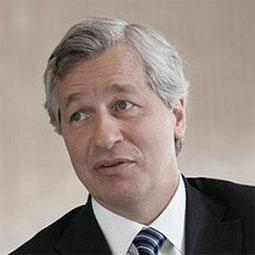A Case For More CEO Tweets
Published: Sep 26, 2012

Marissa Mayer does it. Richard Branson does it. Even Rupert Murdoch does it.
That is, all three of these CEOs tweet.
They are, though, in the minority. Currently, less than 5 percent of chief executives have an active Twitter account. Meanwhile, 35 percent of Americans are now actively tweeting. So, the question begs: why aren't more chiefs sending out 140-character messages and racking up followers by the thousands?
The easy answer is there's too much downside. As we saw in recent weeks with the Romney video gaffe (which I wrote about here last week), if you're deemed a VIP (very important person), it's very possible, and even probable, that every word, phrase, and facial expression you use will be noted and perhaps recorded by someone, somewhere. So, it makes sense that executives responsible for managing millions of dollars and hundreds if not thousands of people might feel gun-shy about posting anything, even the most innocuous of information, via a social media network. (Recent stats also show that only 8 percent of CEOs are on Facebook versus 50 percent of the general U.S. population).
One way CEOs are attempting to lessen this type of downside is by enlisting some help. For example, some CEOs wishing to dip their toes into the Twitter waters have done so with the help of a social media editor and/or social media consultant. In some cases, this is not unlike a celebrity or politician enlisting a ghost writer or speech writer. How it typically works is a CEO will enlist an employee to craft or edit tweets. This employee's job is to ensure that nothing in the chief's tweet can and will be used against the chief (or the company) at a later date. An example of this was given in a Wall Street Journal article published today:
GE's [CEO] Mr. Immelt, for instance, has a team that works to "execute his vision" on Twitter, helping him draft tweets, according to company spokeswoman. The tweets are the result of a "discussion" between Mr. Immelt and Deirdre Latour, GE's senior director of communications, but "it's his tone and vision," she says.
Another reason CEOs often give for failing to tweet is time. Which is to say tweeting takes time and VIPs are, well, VIPs, and they've got shareholders to worry about, earnings calls to worry about, 16 different divisions and five business lines that include 12,000 employees worldwide to worry about. So when's a CEO supposed to find time to craft and send a carefully thought out message to the world at large?
Fair enough. But if CEOs can enlist third parties to help them manage their accounts, that can surely, at the very least, minimize time spent tweeting.
Which leads us to the benefits of chief executive tweets. Recently, a survey surfaced showing that it might make a whole lot of dollars and sense for CEOs to jump on the Twitter bandwagon. The following appeared in a Harvard Business Review article this past summer:
The BRANDFog 2012 CEO Survey says more than 82% of respondents are likely or much more likely to trust a company whose CEO and team engage in social media. The study also reports that 77% of respondents are likely or much more willing to buy from a company whose mission and values are defined through their leaderships' involvement in social media.
In other words, CEOs getting involved in social media campaigns on behalf of their companies could very well improve the bottom line.
Although matching tweets to profits is certainly new territory and hasn't been proven, there have been example of how tweets have impacted business. The following was written in a recent Forbes column by Josh James, the CEO of Domo, an American software firm:
One day I tweeted about a product feature that I liked. Two weeks later in a meeting with engineering, I was shown our product with that particular feature built in. We never had a meeting to discuss it. I never sent a memo. The engineer took the cue and figured out how to make the product better. That was pretty amazing.
James (whom Fortune named one of its "40 Under 40" top business executives in 2009, Ernst & Young named its Entrepreneur of the Year in 2006, and Brigham Young University named its Technology Entrepreneur of the Decade) also notes:
We don’t have the size and scale of a large multinational—at least not yet. But we’ve seen benefits since I’ve started using Twitter, Facebook and LinkedIn. We’ve attracted recruits, drummed up enthusiasm for our brand and garnered some immediate feedback from prospects on our product. Our organization has flattened and we are moving more quickly.
I'd also argue that chief executives who get involved in social media campaigns (and, in particular, start tweeting) could, depending on the subject and tone of their 140-character messages, significantly increase communication between the C-suite and their company's rank and file. Which could very well result in increased employee morale. Which could then result in a more productive workforce. Which could then result in a further bump to the bottom line.
And here's one final push from Domo's CEO James for why chief executives should begin to tweet. In the same Forbes column, he writes:
While Domo’s size might make it easier for me as the CEO to get on board with social [media], Fortune 500 CEOs have much more risk by NOT embracing these channels, and they are making it easier for others to out-innovate them or take over their brand ... The point is that CEOs need to champion innovation wherever it exists. Social media is just one form of innovation, and you can be sure there's much more coming down the pike.
Read More:
140 Characters of Risk: Some CEOs Fear Twitter (WSJ)
CEOs Afraid Of Going Social Are Doing Shareholders A Massive Disservice (Forbes)
New Research on Why CEOs Should Use Social Media (Harvard Business Review)
